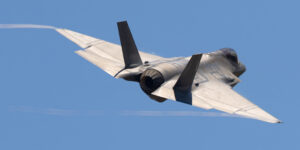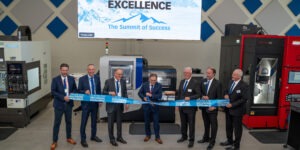Additive Manufacturing Center of Excellence is Created
EWI, Auburn University-NASA and ASTM are developing a global innovation hub to shape the future of aerospace, auto, medical, and other manufacturing.
Posted: March 29, 2018
ASTM International (West Conshohocken, PA), a world-renowned standards and related services organization, announced the winners of a global competition for their first-ever Center of Excellence that will focus on additive manufacturing (AM), also known as 3D printing. From a pool of dozens of proposals submitted in December, Edison Welding Institute (EWI; Columbus, OH) and Auburn University–NASA (Auburn, AL) were co-selected. These organizations and their partners will work to create a global innovation hub that advances technical standards and related research and development, education and training, and more.
“This game-changing collaboration will build a strong foundation for the future of additive manufacturing,” said Katharine Morgan, the president of ASTM. “The synergy among Auburn, NASA, and EWI – combined with the trailblazing work of our additive manufacturing committee – will help fill industry gaps and accelerate innovation. It’s clear that this new center has the potential to shape the future of industries like aerospace, auto, medical, and more.”
With funding in-kind and other support from ASTM, the organizations involved in the Additive Manufacturing Center of Excellence will focus on bridging standards development with R&D. As part of that, EWI will work to build industry consortia, leveraging the organization’s track record of developing, testing, and implementing advanced manufacturing technologies. “We are thrilled to be helping lead this new center of excellence with ASTM, Auburn University, and NASA,” said Dr. Frank Medina, the AM technology leader at EWI. “We look forward to bringing AM industry leaders to the table and working with them to identify challenges, advance groundbreaking standards, and drive innovation in this fast-growing area.”
In addition to their research activities, part of Auburn University’s role will be to develop education and training resources and tools. “Our college has made major investments in faculty, laboratories, and equipment to achieve a leadership position in additive manufacturing,” said Christopher Roberts, the dean of Auburn University’s Samuel Ginn College of Engineering. “The efforts by our faculty are resulting in significant dividends to our research program. To be recognized by ASTM is quite an honor and we look forward to a productive, collaborative relationship with ASTM and EWI.”
“NASA and ASTM have had a decades-long relationship in developing aerospace and aviation standards that benefit NASA’s mission and the industry as a whole,” added John Vickers, NASA’s principal technologist in advanced manufacturing. “We look forward to working with Auburn and EWI to link R&D and standardization efforts that will uncover the vast potential of additive manufacturing applications.”
Dr. Nima Shamsaei, an associate professor of mechanical engineering at Auburn University, spearheaded the university’s proposal. He and Doug Wells, a senior engineer of structural materials at the NASA Marshall Space Flight Center (Huntsville, AL), are their principal investigators. Other stakeholders interested in the Additive Manufacturing Center of Excellence can contact Dr. Mohsen Seifi, the director of global additive manufacturing programs at ASTM International. To contact him, please click here. He notes that they are considering an additional center of excellence outside the U.S. from their existing pool of applicants.
ASTM International’s committee on additive manufacturing technologies (F42) was formed in 2009. This committee, in conjunction with the International Organization for Standardization’s (ISO) Technical Committee 261, has worked and continues to work closely with the Additive Manufacturing Standards Collaborative to identify and fill a variety of gaps across multiple industry sectors. For an overview of ASTM International’s leadership in AM standardization, please click here.














